
This is the first time Yen Chau district has held the Plum Harvest Festival in the border commune of Phieng Khoai, which boasts the largest area of plums in the district, with 2,300 hectares. Thanks to favourable climate and natural conditions, along with the application of advanced science and technology by local farmers, the plum trees here produce high yields and excellent fruit quality. Currently, nearly 500 hectares of plums in the commune have been certified as using high-tech cultivation methods.
The festival featured a wide range of unique and engaging activities such as a plum-picking contest; an artistic plum arrangement competition; a plum-eating contest; an exhibition of local agricultural products and traditional handicrafts from communes and town; traditional folk games; cultural and art performances; garden tours with pick-and-taste plum experiences; and a ceremony honouring outstanding individuals and cooperatives that have made significant contributions to building the brand and developing plum products.
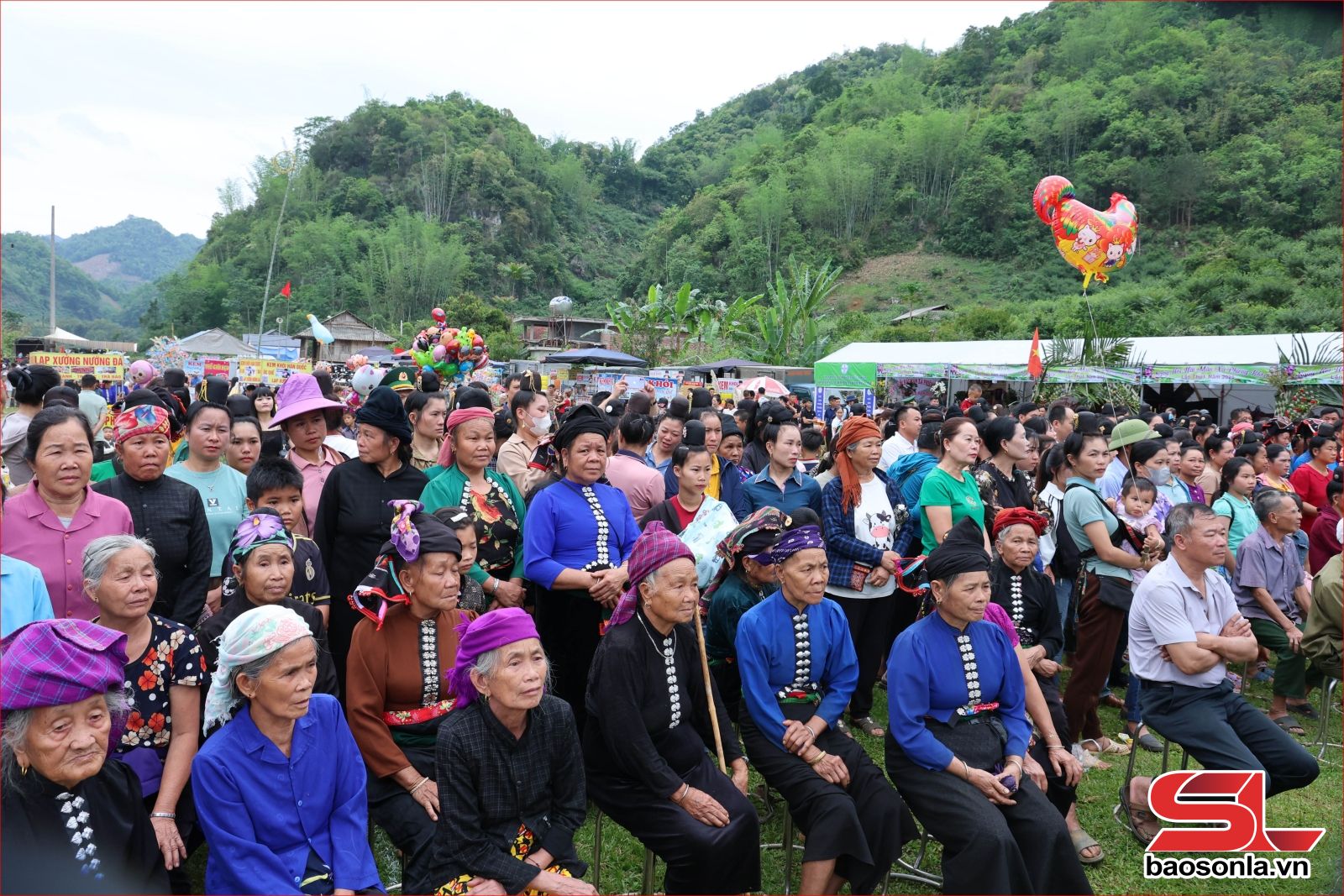

With the message “Clean agricultural production linked to environmental protection,” the festival aimed to bring the Phieng Khoai plum brand—known for its crisp texture, sweet flavour, fragrant aroma, and safety—to more consumers. The event also helped promote and introduce Yen Chau’s plum products; honour plum growers; foster sustainable agricultural economic development linked with tourism; provide a platform for experience sharing and knowledge enhancement among plum growers; and boost the value of this key crop to improve local farmers’ incomes.

One of the most anticipated events by locals and tourists alike was the plum-picking and plum-eating competitions.
In the plum-picking contest saw the participation of nine teams representing hamlets with large plum-growing areas in Phieng Khoai commune. Each team consisted of three members dressed in traditional ethnic costumes, who competed by picking ripe plums.


Within a time limit of five minutes, team members had to select large, ripe, and visually appealing plums. Climbing trees, shaking branches, picking unripe fruit, breaking branches, or damaging the trees in any way was strictly prohibited. The team that harvested the largest quantity of high-quality plums would be declared the winner. After the picking contest, teams used their harvested plums to decorate and display their stalls.


Equally exciting was the plum-eating contest, using the plums just picked. From each team, one representative was selected to take part. The organising committee provided 2 kilograms of plums per team. Participants were judged not only on speed but also on presentation—showing enthusiasm while eating, and ensuring minimal flesh was left on the pit. In two minutes, the team whose representative ate the most plums correctly and within the rules would win.
These lively competitions created a vibrant atmosphere for the festival, offering a chance for the teams to interact, learn from one another, and share experience. At the same time, it was an opportunity to honour the farmers who cultivate and care for the plum trees, and to attract greater participation from the public and visitors alike.

As part of the first Phieng Khoai Plum Harvest Festival, a local agricultural product display competition was also held.
Nine teams from hamlets and schools across the commune participated, bringing to the festival a vibrant and colourful showcase of Phieng Khoai’s diverse agricultural landscape. They showcased a variety of signature and standout local products such as plums, peaches, melons, bananas, and various vegetables and fruits grown under VietGAP and organic standards.
Processed goods like soft-dried plums, crispy dried bananas, chewy dried bananas, traditional herbal remedies, hand-woven textiles, and handicrafts were also on display. The booths were creatively and scientifically arranged, presenting a wide range of high-quality products while minimising the use of plastic.
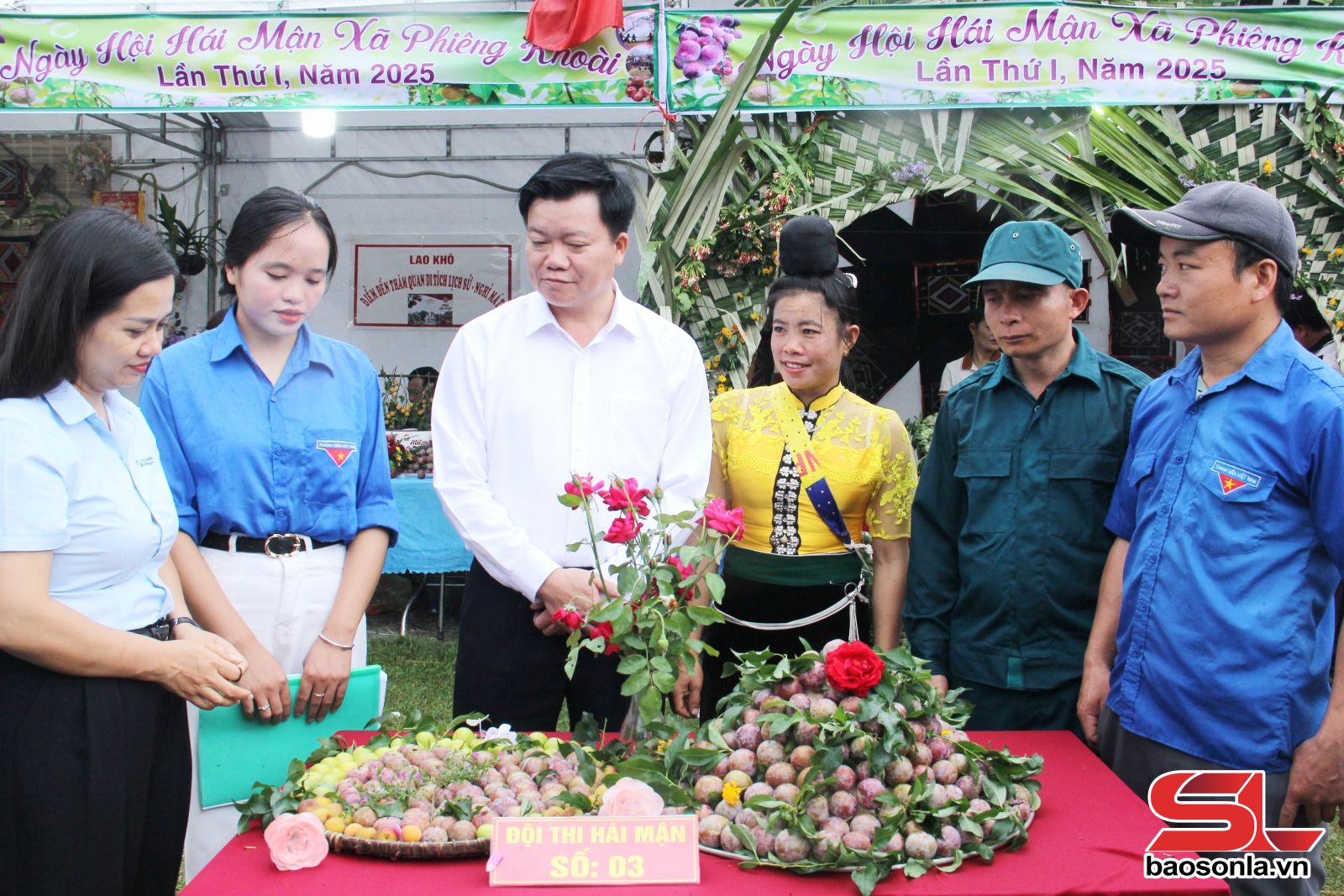
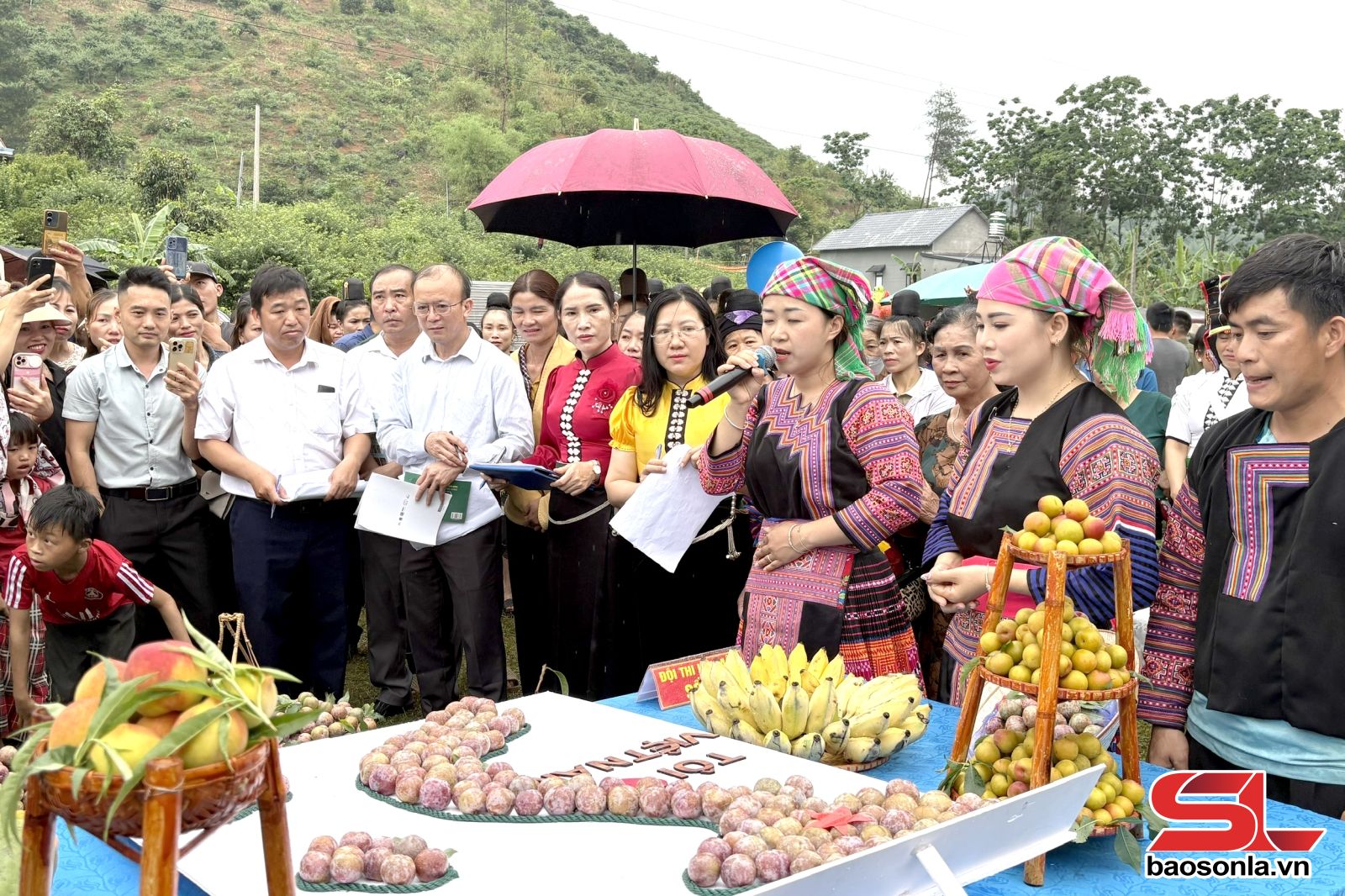
With skillful hands and creative ideas, the teams used plums and other local produce to create models of maps or famous local landmarks, such as the Vietnam–Laos Revolution Historic Site, expressing pride in their homeland and love for their country. The displays also conveyed a strong message of safe agricultural production tied to environmental protection.
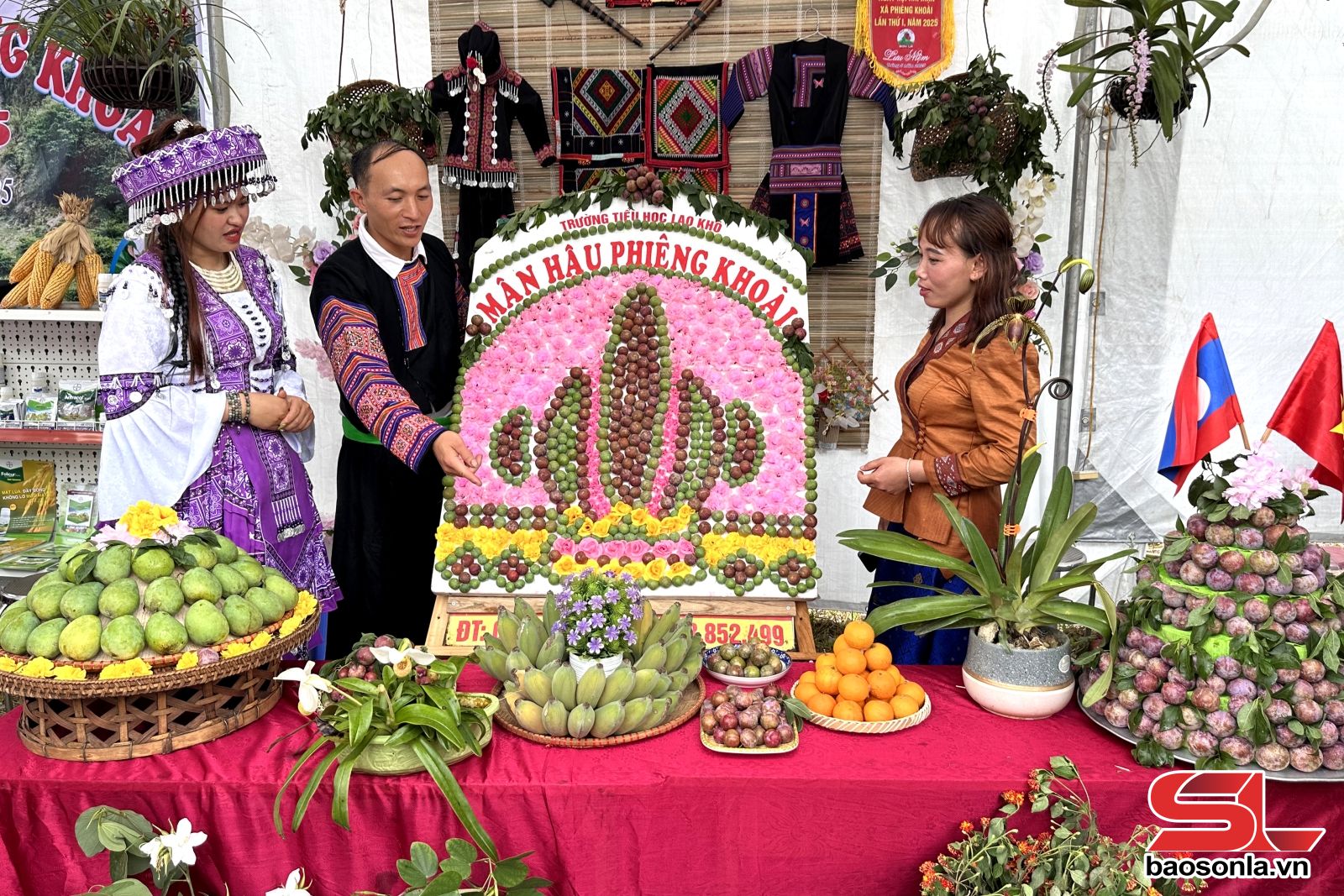
During the 3-minute presentation, each team introduced key features of their local area or institution, providing comprehensive information about their products, including origins, production processes, quality, and market potential.
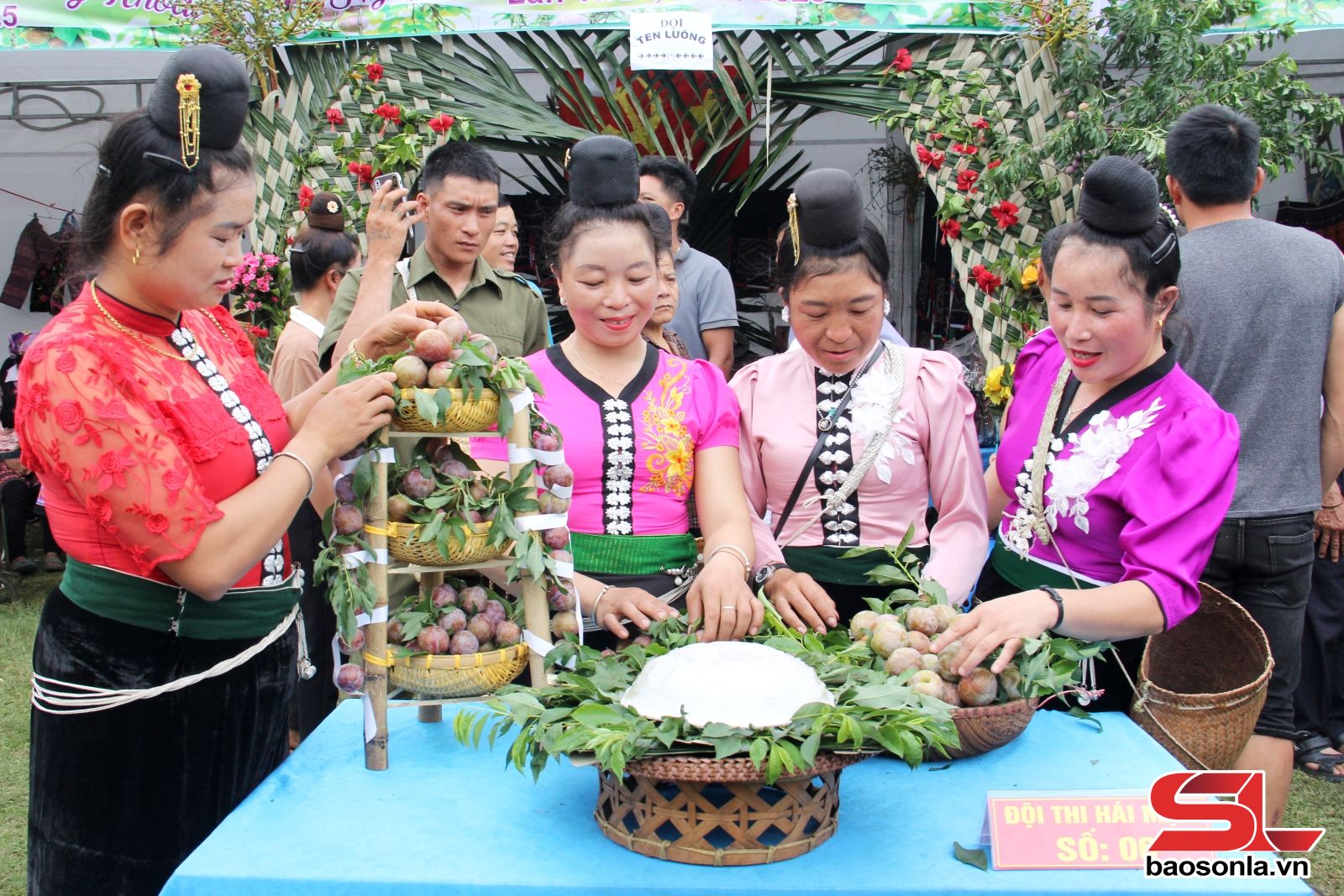
The local agricultural product display competition played a significant role in promoting and introducing Phieng Khoai’s signature products to visitors from within and outside the province. It also highlighted the commune’s potential and strengths in cultural, sports, and tourism development, as well as the rich heritage of the local ethnic communities.
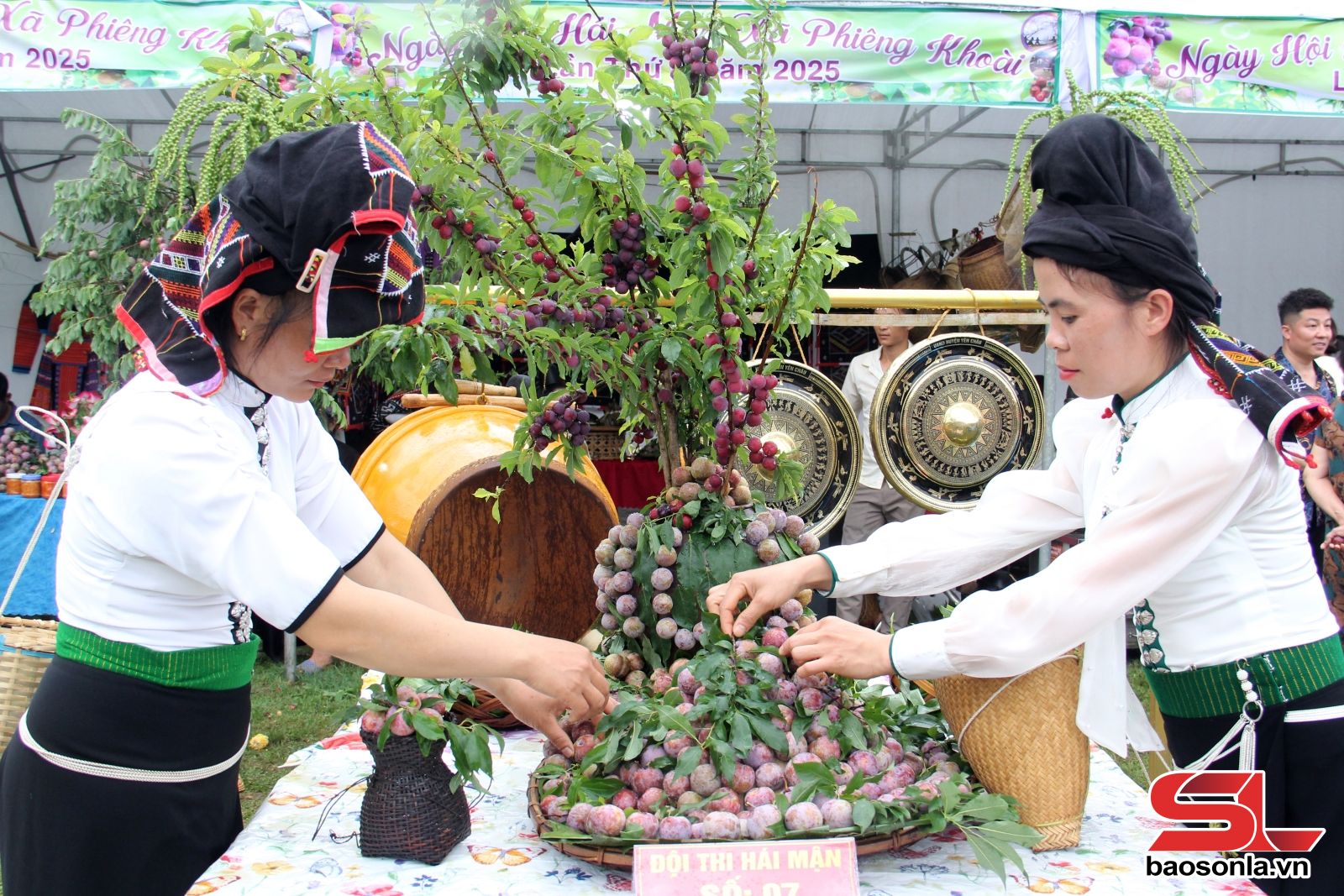
Plums on display at the festival.













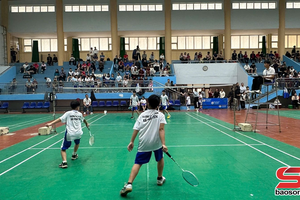



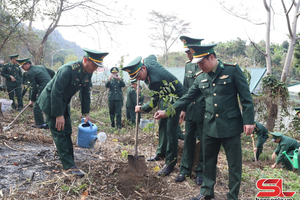
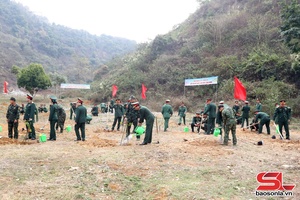
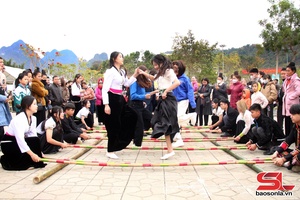



You have 500/500 characters left
Please enter 5 or more characters!!!